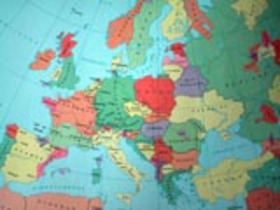European Economic Area, EEA

- (Photo: EUobserver.com)
A free trade area for the EU countries plus Norway, Iceland and Liechtenstein (the EFTA countries). The free trade does not include agricultural products and fish.
Norway, Iceland and Liechtenstein have adopted around 4000 EU laws, mainly relating to the Internal Market. Formally, they have a special veto right as regards these, but it has never been used.
The EEA Treaty obliges Norway, Iceland and Liechtenstein to pay a contribution to the EU structural funds, which amounts to 0.02% of their GNP, as opposed to the Member States' 0.47% of their GNP. Since the current financial agreement expires in 2003, and as the EU is to be enlarged, increased contributions have been re-negotiated for 2004. The three EFTA countries must then pay ten times more, 230 million Euros per year, for access to the markets in the enlarged European Union.
The EEA is governed by a Council that meets biannually and a Joint Committee of high-ranking civil servants that meet at least monthly.
Notes
- The EU Parliament has a joint delegation with MPs from Norway, Iceland and Liechtenstein.
- The EEA Treaty is established in accordance with the EU rules for Association agreements, which require unanimity in the Council and the assent of the EU Parliament.
- The EEA Treaty has established a special EEA Court to ensure that its rules are interpreted identically in the EU and the EFTA countries without the EEA-Countries actually ceding sovereignty to the EU.
Links
http://europa.eu.int/comm/external_relations/eea/